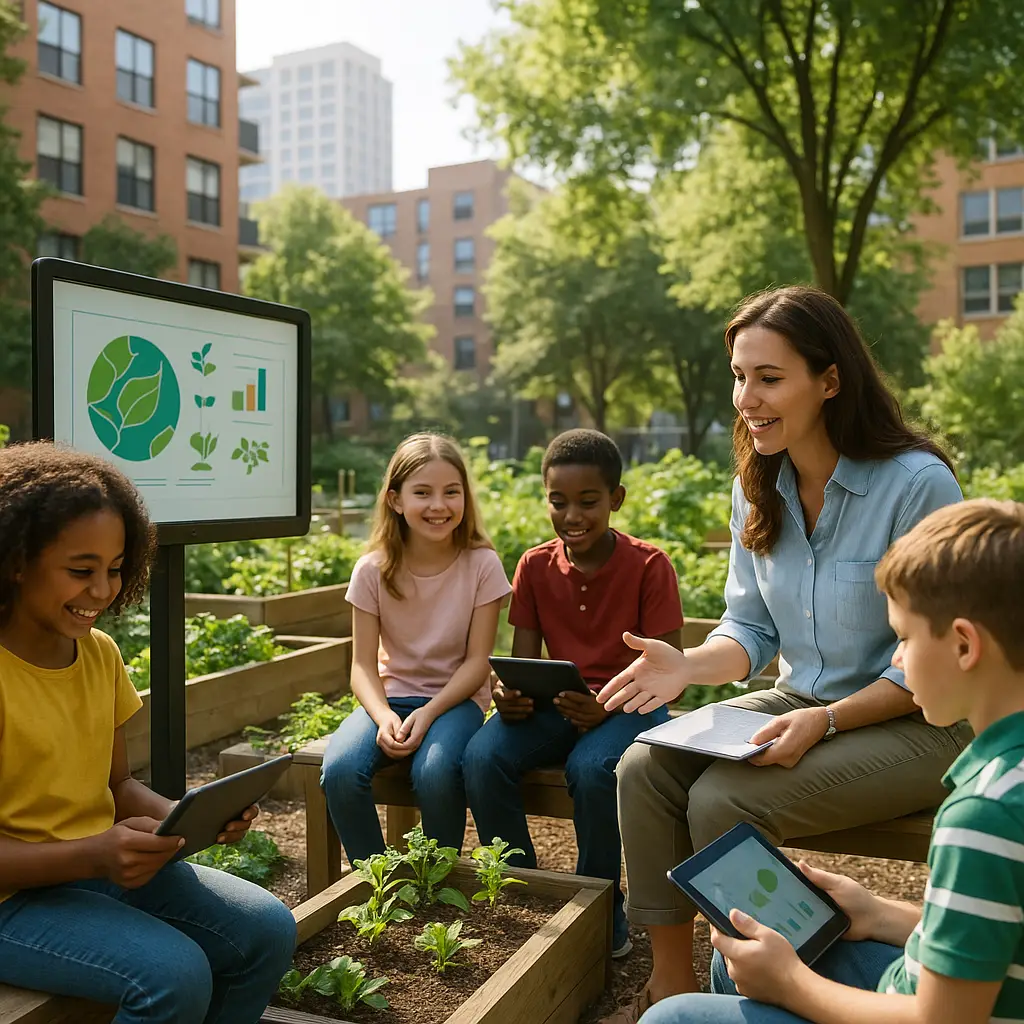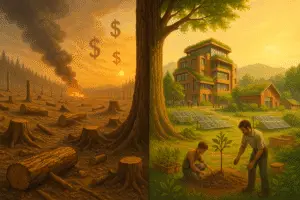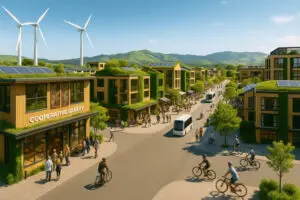Education Strategies Tech

Education Strategies Tech in Sustainable Development
Education strategies tech plays a central role in driving sustainable development in Australia. As communities face urgent climate and ecological challenges, educational efforts ensure that people are both informed and engaged. Notably, outreach is no longer confined to schools—it spans apps, public media, and citizen-led initiatives. Because informed citizens support and maintain sustainable practices, education becomes infrastructure in its own right.
Defining Sustainability Education & Outreach
Education and outreach in sustainability refer to teaching, engaging, and motivating people about environmental responsibility and green infrastructure. This includes formal classroom learning, informal workshops, and public campaigns. Importantly, these efforts link personal actions with global environmental impacts. For example, Australia’s National Environmental Education Strategy supports lifelong eco-literacy across society. Additionally, Enviroschools promotes action-based learning among young people nationwide.
Trends in 2024–2025: New Tools and Approaches
Recent years have introduced gamified platforms, immersive simulations, and AI-driven learning paths. These innovations make learning more engaging. For instance, EcoChallenge 2.0 gamifies sustainable shopping by awarding points for eco-conscious purchases. Similarly, virtual reality field trips enable students to explore coral reefs or simulate green infrastructure planning. Because these tools are interactive, they make abstract topics tangible and memorable. Moreover, educators report stronger learning retention through play and immersion.
Community Engagement through Citizen Science
Citizen science is rapidly growing. It empowers the public to collect data on biodiversity, water quality, and pollution. In Melbourne, participatory planning for urban forestry invites residents to co-design green spaces. This builds both knowledge and local ownership. Residents help identify tree-planting sites and learn species benefits. As a result, engagement becomes long-term support. Visit Melbourne’s public consultation portal to explore these collaborative efforts.
Accessible, Open Education for All
Digital education platforms are scaling fast. Providers such as Coursera and UNEP Earth School offer free climate courses. Additionally, podcasts and YouTube channels now serve as major learning hubs. Because content is on-demand, people of all ages and backgrounds can engage. This media variety ensures sustainability messages are accessible—even outside traditional school systems. In turn, lifelong learning becomes a reality.
Key Impacts of Outreach Education Strategies Tech
- Climate Literacy: Improved understanding leads to better choices and stronger advocacy.
- Behaviour Change: Campaigns influence daily habits—reducing waste or boosting biking rates.
- Empowered Communities: Informed locals maintain green infrastructure and lobby for policies.
Challenges and Practical Solutions
Education faces barriers like misinformation, apathy, and cultural mismatch. However, these can be tackled. Storytelling and relatable local examples replace abstract jargon. Trusted messengers—teachers, elders, or local scientists—improve credibility. Furthermore, inclusive methods such as bilingual materials and peer-led workshops broaden access. When programs are locally relevant, participation increases dramatically. For instance, the ResourceSmart Schools program adapts sustainability teaching to each school’s culture and goals.
Looking Ahead: Education Strategies Tech Evolving
By 2030, environmental education will likely be mainstream and tech-enhanced. AI tutors may personalise learning based on individual interests, improving effectiveness. At the same time, global educator networks will continue sharing content and best practices. According to UNESCO, integrating sustainability into all learning programmes is critical. As this vision becomes real, we will see greener cities supported by informed and active citizens at every level.
Technical

Short Long Term Profit Tech
Short Long Term Profit Tech describes the gap between rapid gains and durable value; closing that gap is central to sound policy, finance, and corporate strategy. Infrastructure: the cost of deferred upkeep Short Long Term Profit Tech The 2007 collapse of Minneapolis’s I-35W bridge shows how chasing short-term savings can

Global Insights Green Tech
Global Insights Green Tech Infrastructure research reveals that urban sustainability advances fastest when cities treat climate solutions as shared intellectual capital rather than proprietary assets. The cross-regional exchange, for instance, of green infrastructure policies—from Copenhagen’s storm-water “sponge” parks to Vancouver’s low-carbon mobility—lets planners skip trial-and-error and move directly to scalable,
Automation Sustainable Development Tech
Automation Sustainable Development Tech Automation Sustainable Development Tech is rapidly reshaping sustainable urban development across Australia. By integrating artificial intelligence (AI), real-time data, and smart infrastructure, cities can now reduce emissions, optimise energy, and respond faster to climate threats. From Sydney’s digital twin models to Auckland’s urban tree mapping via